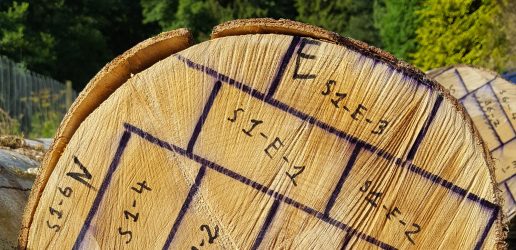A new national monitoring project aims to help prevent the potential spread of a serious pest affecting spruce trees – the larger eight-toothed European spruce bark beetle (Ips typographus).
The project is offered via Forest Lab and is run by Sylva Foundation, Forest Research and Forestry Commission.
Volunteers are wanted from England, Wales and Scotland who have spruce growing in woodland that they own or manage, and who are willing to host and collect samples by installing a spruce bark beetle trap.
By taking part in the project, volunteers will become part of an early-warning system and help action to limit the impacts of this pest. They will also be contributing crucial data to science that will help researchers to better understand the biology of Ips typographus and help shape policy and guidance for the sector.
Another benefit of taking part is that if this pest is discovered breeding in a volunteer’s woodland, prompt action can be taken to limit damage. Whether the pest is found in their woodland or not, volunteers will gain insights into management actions which may reduce the vulnerability of their woodland.
Find out more from volunteers Tim Read and Andy Stott who share their experiences of joining the project.
Download Tim Read’s case study [PDF, 3.32 MB]
Download Andy Stott’s case study [PDF, 3.99 MB]

Forest Research has announced that Dr Bianca Ambrose-Oji, currently Head of its Society and Environment Research Group, will succeed Professor Chris Quine FRSE as Chief Scientist from June 2025.
England’s non-woodland trees have been mapped for the first time, revealing these trees make up nearly one third of our nation’s tree cover.

Forest Research, in partnership with Edinburgh Napier University, have taken a first step in systematically assessing the timber potential of underutilised species in the UK.

Forest Research has announced that Dr Bianca Ambrose-Oji, currently Head of its Society and Environment Research Group, will succeed Professor Chris Quine FRSE as Chief Scientist from June 2025.
England’s non-woodland trees have been mapped for the first time, revealing these trees make up nearly one third of our nation’s tree cover.

Forest Research, in partnership with Edinburgh Napier University, have taken a first step in systematically assessing the timber potential of underutilised species in the UK.